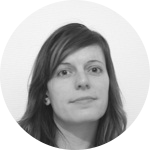This Friday marks the International Day for the Eradication of Poverty, so what better time to reflect on the structural causes of poverty in the world.
Africa, Asia and Latin America may be the poorest parts of the world in terms of income but these regions are rich in minerals, food, culture, land, natural resources and drinkable water sources. So why the incongruity?
Firstly, all too often, wealth and poverty are defined solely in economic terms when in fact, social, political and environmental lenses are also needed to analyse the issue.
And even if we were to look only at economic indicators, poverty is usually referred to in terms of economic growth.
But a country can grow poor, polluted and unequal. Economic growth does not equate to the eradication of poverty.
And as Sharan Burrow of the International Trade Union Confederation (ITUC) recently commented: “Inequality is deep and it is growing. No corner of the world has been left untouched.”
Trade unions and civil society organisations are increasing their efforts to highlight the disastrous link between poverty and inequality.
Oxfam will be launching soon a landmark report which sets out both the scale of inequality problem and some of the possible solutions.
Alongside rising inequality is the growth of restrictions on social, political, environmental and economic rights around the world.
As journalist Jonathan Glennie observed, it is “the same old story”, he writes, “the wealthy want more and have the power to take it. The poor lose everything.”
The power of the wealthy restricts the rights of the poorest and their opportunities to demand fairer trade, fairer aid and a financial system that would benefit all people and their environment rather than just a wealthy few.
So, on 17 October, when discussing poverty, we will have to widen the debate beyond economics to challenge the poverty of the policies which have brought fewer rights and more inequality around the world.









